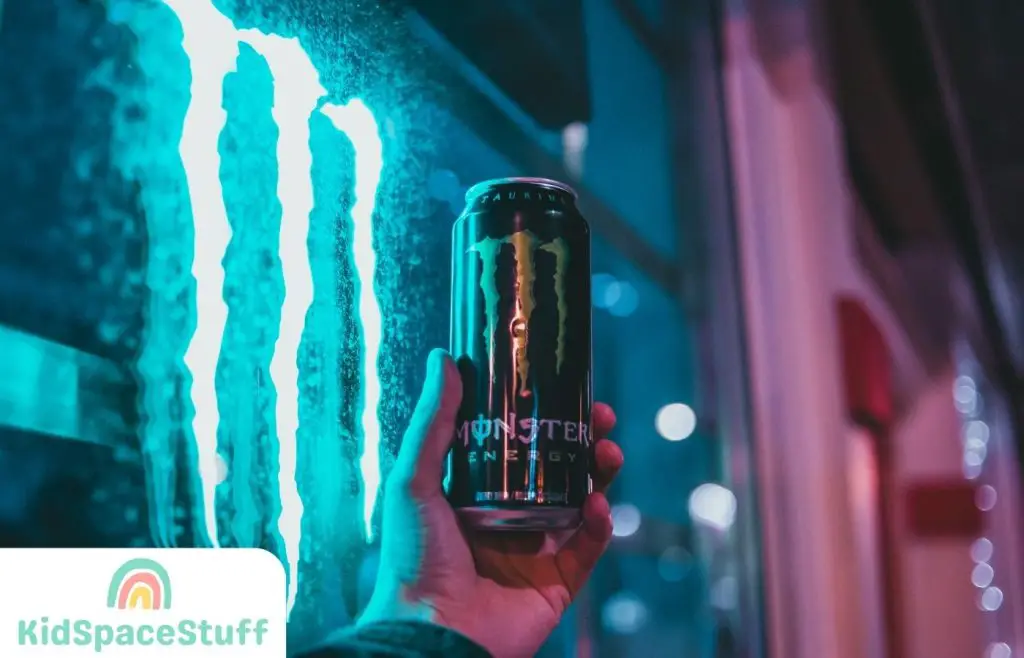Being a mother comes with a barrage of questions that often leave us second-guessing.
Among the many inquiries that have crossed my path is this one: “Can kids drink Celsius?”
To answer simply, no, they should not. Just like with GFuel, Celsius is a popular energy drink that is not recommended for children. But why? Allow me to delve deeper into this.
What Age Do You Have to Be to Drink Energy Drinks?
The debate on the suitable age to drink energy drinks has been ongoing.
Many health experts agree that children under 18 should avoid consuming energy drinks due to their high caffeine and sugar content. Notably, companies like Celsius Holdings label their products as unsuitable for those under 18, pregnant women, and individuals sensitive to caffeine.
Why Is Celsius Not Recommended for Children Under 18?
Celsius energy drinks are fitness drinks designed to provide essential energy, boost metabolism, and increase caloric burn. They contain a proprietary blend of ingredients, including green tea extract and guarana seed extract, known to accelerate metabolism and burn body fat.
While these effects may seem appealing for adults looking to enhance their workout routine, they can have adverse health effects on children.
High caffeinated beverages like Celsius can increase heart rate and blood pressure, potentially leading to health issues. Furthermore, consuming Celsius and other stimulants may cause difficulty sleeping in kids.
The Allure and Risks of Energy Drinks
The promise of energy drinks to boost energy levels, increase metabolic rate, and support fat burning is alluring, especially for active, busy teenagers. They may be tempted to drink Celsius as a pre-workout drink, lured by its natural ingredients and claims to boost metabolism and burn calories.
However, the caffeine content in energy drinks, including Celsius, is significantly higher than other caffeinated beverages commonly consumed by children, such as soda. Too much caffeine can lead to a number of adverse effects, including nervousness, nausea, and, in severe cases, heart palpitations.
Celsius Drink Side Effects

1. Increased Heart Rate
One potential side effect of consuming energy drinks like Celsius is an increased heart rate. The high caffeine content found in these drinks can overstimulate the heart, leading to a faster and potentially erratic heart rate. This is a particular concern for young people whose bodies are still developing.
2. High Blood Pressure
Another common side effect associated with consuming high caffeinated beverages like Celsius is high blood pressure. The caffeine in these drinks causes the heart to pump harder, leading to increased blood pressure, which can be harmful, especially in children and teens.
3. Disruptions in Sleep Patterns
Caffeine is a well-known stimulant that can interfere with sleep. Children drinking Celsius may experience difficulty sleeping due to the high caffeine content. Lack of sleep can negatively affect mood, cognitive function, and overall health.
4. Caffeine Toxicity
When consumed in large quantities, caffeine can lead to toxicity, which can have serious effects on the body. Symptoms of caffeine toxicity can include jitters, nervousness, nausea, and in severe cases, heart palpitations or even seizures.
5. Increased Body Temperature
Celsius energy drinks contain ingredients like green tea extract and ginger root extract that can stimulate the body’s metabolism, leading to increased body temperature. While this is usually mild and temporary, it can be uncomfortable and potentially dangerous in extreme cases.
Here’s a great video explaining more of the side effects that energy drinks like Celsius can cause.
Deciphering the Ingredients of Celsius
The essential energy of the Celsius energy drink comes from its potent blend of ingredients like caffeine, green tea extract, and guarana seed extract. These components are geared towards increasing metabolic rate, encouraging body fat burn, and enhancing overall energy levels.
While these ingredients are natural, they can still cause health issues when consumed in large amounts, particularly in children.
The Issue of Caffeine and Sugar
Caffeine and sugar are two main concerns when it comes to energy drinks, including Celsius.
High caffeine intake from drinking Celsius can have serious adverse effects on children, including an increased heart rate and high blood pressure.
The sugar content in many energy drinks can also contribute to health problems, including weight gain and tooth decay. However, it’s worth noting that Celsius is a sugar-free energy drink. Still, its high caffeine content is enough reason to discourage children from consuming it.
FAQs
Can 17-year-olds drink Celsius?
While it is not illegal, it’s generally not recommended for 17-year-olds to consume Celsius. The energy drink contains high levels of caffeine which may lead to adverse effects such as increased heart rate, high blood pressure, and sleep disturbances.
Can 16-year-olds drink Celsius?
Similar to the advice for 17-year-olds, it’s also not advisable for 16-year-olds to consume Celsius. The high caffeine content and potential for adverse health effects make it a risky choice for individuals under the age of 18.
Can 15-year-olds drink Celsius?
Again, while there’s no law prohibiting 15-year-olds from consuming Celsius, health experts do not recommend it. The high caffeine content in Celsius and potential health risks associated make it unsuitable for children and teenagers under 18 years old.
Final Thoughts
As a mom, I understand the need to give our kids a boost, especially with their busy schedules and endless energy.
However, letting kids drink Celsius or any other energy drinks should not be the way to go. They contain too much caffeine for a young, developing body and can lead to adverse health effects.
It’s always best to encourage our children to fuel their bodies with nutritious food, plenty of water, and enough rest. After all, their health and well-being are what matter the most to us.
Have other questions about what kids can have? Check out these posts!
KidSpaceStuff is a site dedicated to helping parents find the best interior design, activities, and inspiration for their kids.